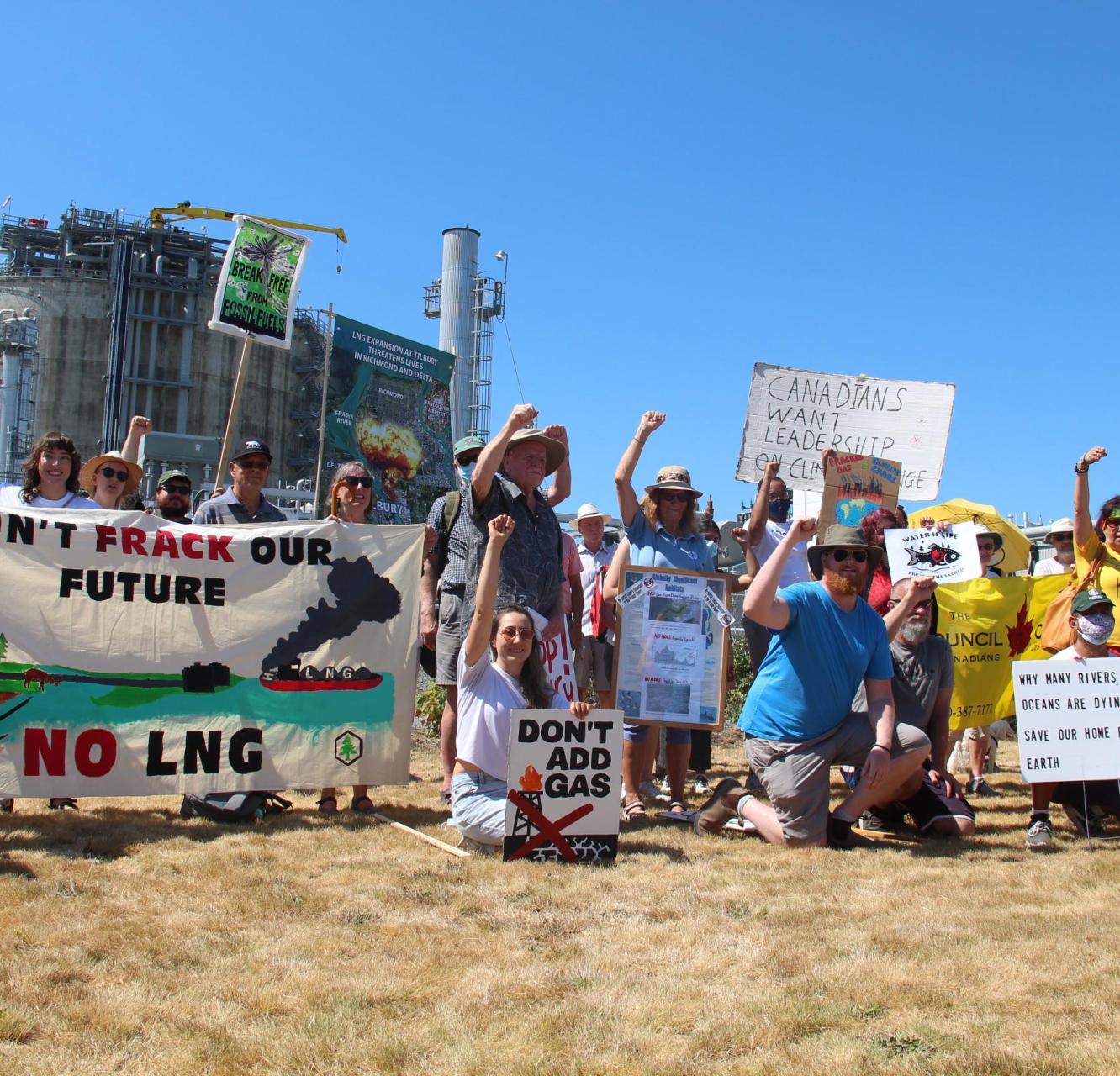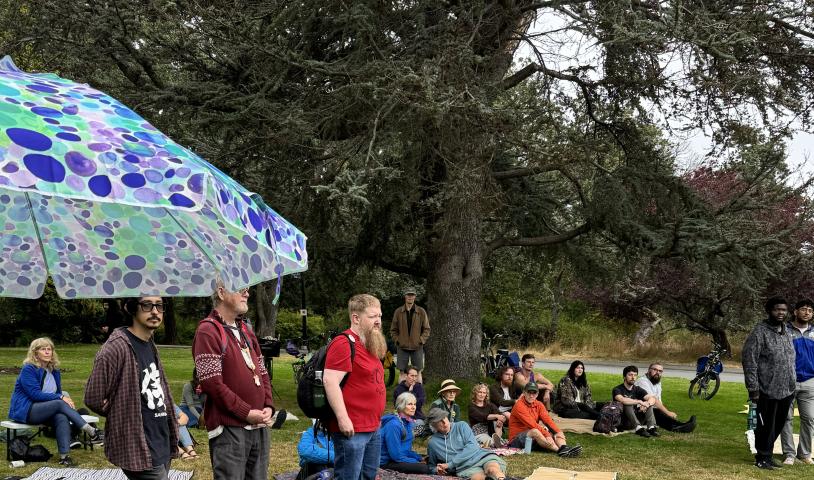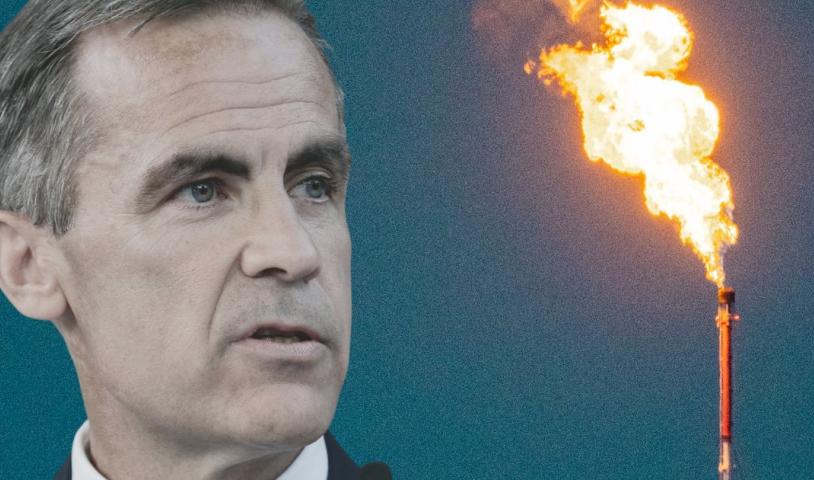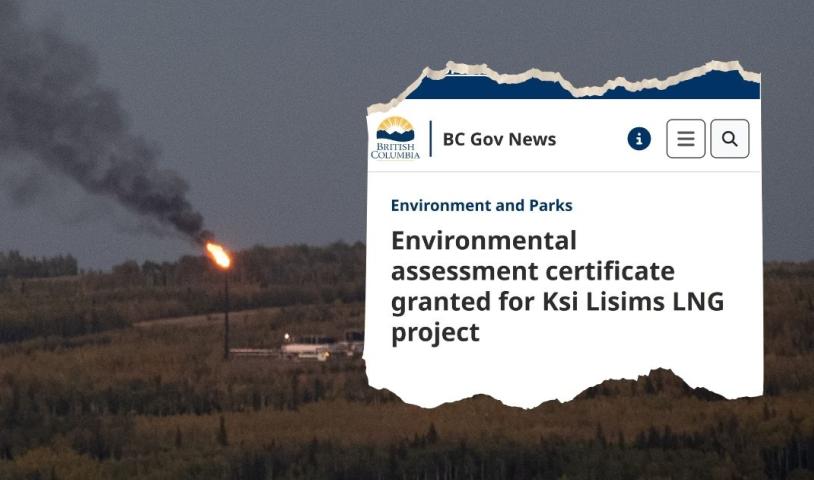A river runs to court: Suit that claims OGC sidestepped Water Act reaches the courtroom
Thursday, April 24, 2014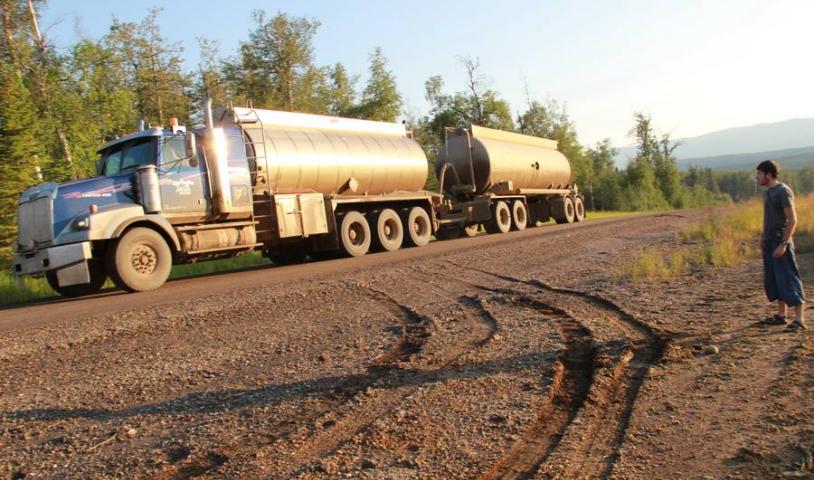
The B.C. Supreme Court will determine in the coming months whether the provincial Oil and Gas Commission unlawfully approved too much short-term water use by the oil and gas industry in the Northeast.
Environmental organizations, the Encana Corporation and the OGC made their submissions to the province's highest court on March 17 and 18.
The fight over one of our most valuable resources comes extremely close to home: for one, the Kiskatinaw River, one of the water sources pointed to in the case, provides Dawson Creek residents with drinking water.
"The Kiskatinaw tells the story," said Eoin Madden, a climate campaigner for the Wilderness Committee, who was represented along with the Sierra Club by Ecojustice lawyers.
"That river was healthy before fracking came to town. It is now not healthy – it's low, its water rates are extremely low. It's been under drought warnings numerous times over the last couple of years."
At the crux of the case is what the province intended in Section 8 of the Water Act, which could be more complicated than it sounds, as the law is 105 years old. (The government recently introduced a new Water Sustainability Act this month to address some of the holes in the 1909 legislation, but a wide swath of critics has attacked the new proposal as "watered down.")
Section 8 reads: "If diversion or use of water is required for a term not exceeding 24 months, the comptroller or a regional water manager may, on application, without issuing a licence, grant an approval in writing, approving the diversion or use, or both, of the water on the conditions the comptroller or regional water manager considers advisable."
However, in this case, Ecojustice is arguing that by issuing short-term permits on a regular basis with no signs of stopping, the OGC was in effect handing out long-term licences without the oversight provided by the Water Act.
"Our evidence put before the court showed [companies] were getting it for six or seven years back to back – same location, same purpose," said Madden. "A good analogy is building a shed on your land: you need a permit if the shed is a certain size, but the gas companies were getting enough permits to put the sheds together to be the size of Walmart."
Ecojustice is claiming in the case that the OGC's approval of these short-term permits was indiscriminate, possibly with full cooperation and encouragement from Victoria.
"It was about the B.C. government not ensuring that fracking companies go through the licensing process to get access to that water," said Madden. "Instead, they were being allowed to take enormous quantities of water for fracking through the issue of these short-term permits that didn't have the same level of oversight, public engagement – all of the really important components that licenses have."
Madden claimed that these short-term approvals are not only being issued, but given in addition to existing licenses that cover the same body of water. One example brought before the court was Wasp Lake, near Feller's Heights on the road to Tumbler Ridge.
"For Wasp Lake, there was a license there that issued 8,500 cubic metres of water per year to Encana for fracking," said Madden, who then explained that in addition, Encana was granted five short-term approvals between 2007 and 2013 – in that final year, allowing for an additional 69,000 cubic metres of water to be drawn.
Madden noted that this is the amount that Encana was permitted to draw from Wasp Lake, but stressed that it was not necessarily the amount that the company actually drew.
Although Encana was also named in the lawsuit, Madden clarified that his group is not alleging any real wrongdoing on the company's part. Madden said Encana had to be brought into the case because their latest short-term permit would have to be overturned, if the court rules in Ecojustice's favour.
"They were basically availing of a process that was made illegal or unlawful by the B.C government – it's the B.C. government's job to refuse these permits," said Madden.
In an email response, Encana spokesman Doug McIntyre said that the company uses water responsibly in a number of ways vitally necessary for oil and gas production. He added that the company regularly consults with First Nations, landowners and communities on which sources of water can be used for oil and gas operations, and said they are open to discussions on water use.
"Encana believes there is no proper basis to quash the subject approvals, given the proper interpretation of section 8 of the Water Act, and the fact that each of the subject approvals were granted through the OGC's full application process in accordance with the applicable statutory requirements," McIntyre wrote.
Freedom of information requests on the approvals issued to Encana, along with Penn West, were obtained by the environmental organizations, although Madden said they could have chosen any number of companies operating in the province.
One of the Ecojustice lawyers, Karen Campbell, was quoted recently as saying that her clients' analysis of those short-term permits showed that five of every six approvals were repeated more than once.
"It was the overall process that is employed by the B.C. government when it looks at water for fracking, right across B.C.," said Madden. "The case is based on a data set that did include the Kiskatinaw, but it really was a cross section of enormous amounts of rivers, lakes, creeks and water source dugouts."
OGC representative Hardy Friedrich would not comment directly on the case, as it is before the courts, but said that water use in the province is monitored extensively. Encana also reserved any further comments pending the judge's decision.
Although it is not yet law, Madden pointed out that one section of the aforementioned Water Sustainability Act appears to take aim at this specific case, arguing that permits can still be issued back to back for the same water source.
The Ministry of the Environment noted in an email that Section 10 of the bill does not appreciably change the current law.
"It essentially carries forward the authority that currently exists in the Water Act, including clarification that consecutive or subsequent use approvals may be granted for using water," said the Ministry rep, who also noted that short-term approvals do not lead to long-term water rights for the company, therefore allowing the government flexibility in responding to conditions such as climate change or the changing needs of the user.
Although the bill is in the early stages, Madden said it did put some pressure on the case to see that the government was responding by clarifying that their previous actions would now, with certainty, be lawful.
"As well as fracking and this whole drive to liquefied natural gas and increasing our gas production fivefold – creating 39,000 new gas wells, nine out of 10 that have to be fracked – we're driving climate change by doing that," said Madden.
"We're completely killing our climate leadership, and then we're putting pressure on our scarce water resources by giving it all to the very industry that is making climate change worse. It's a joke, it's an absolute joke.
"We have so much intelligence, so much ability in this province and we're being sold very short by very bad levels of responsibility from our government. We deserve better and we need to put our foot down."
Photo: Joe Foy
